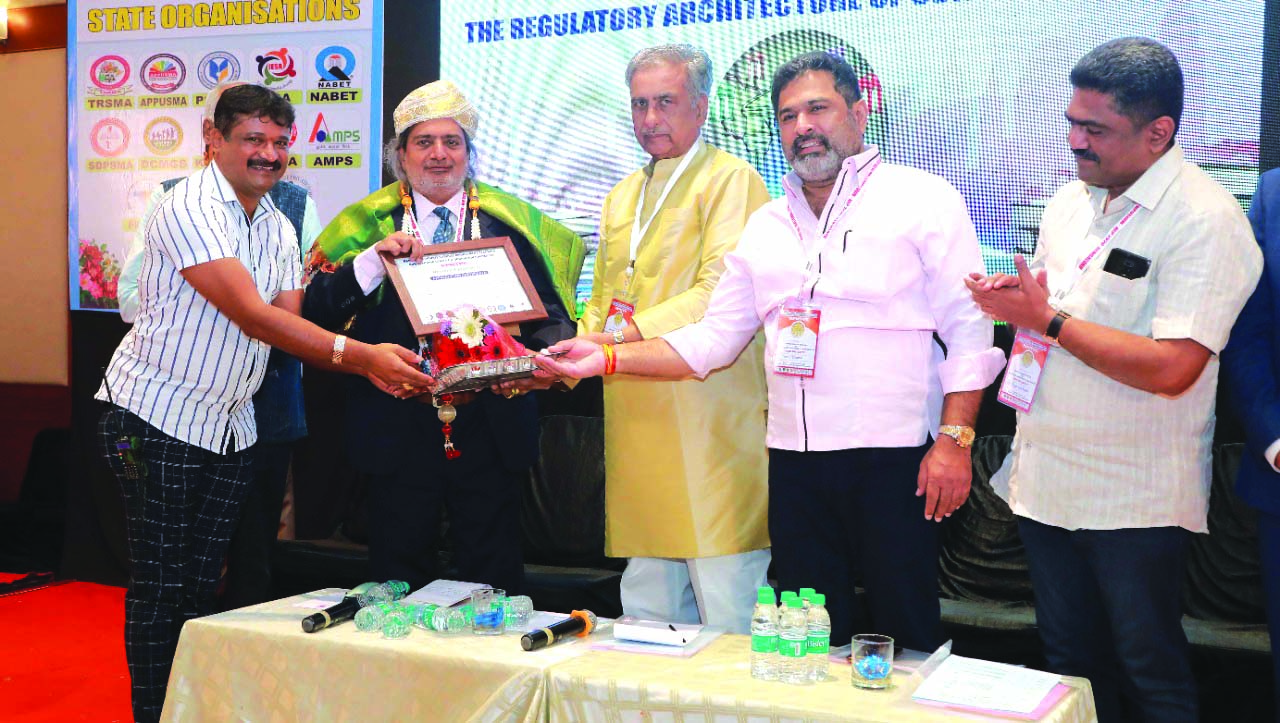
Reshma Ravishanker (Bengaluru)
Against the backdrop of Karnataka (pop.69 million) becoming the first state countrywide to start implementing the National Education Policy (NEP) 2020 beginning with higher education last September, the Karnataka Private School Managements Teaching and Non-Teaching Staff Coordination Committee (KPMTCC), which has 7,000 member schools, hosted a two-day national symposium to deliberate the ‘Regulatory Architecture of School Education Governance as recommended by the National Education Policy 2020’ in Bengaluru on February 25-26.
The two-day symposium, which attracted over 200 delegates including school promoters, trustees and principals from 12 states countrywide, and policy makers and government advisors, thoroughly discussed the implications of implementing Chapter 8 — ‘Regulation and Accreditation of School Education’ of NEP 2020 — upon the country’s 450,000 private schools.
Chapter 8 proposes an elaborate K-12 education regulatory structure headed by a Department of Education in all states and Union territories for “overall monitoring and policymaking for continual improvement of the public education system”. Operations and policy implementation falls within the purview of the Directorate of School Education, while an independent State School Standards Authority (SSSA), to be constituted by the state government, will set standards for safety, security, basic infrastructure, teacher adequacy, financial probity and sound processes of governance (para 8.5). All schools are obliged to make full disclosure of information as per the (no doubt elaborate) format prescribed by SSSA on their websites with SSSA empowered to adjudicate “any complaints or grievances” arising out of the information posted.
The galaxy of panelists including Rajendra Singh, president, Independent English Schools Association (Maharashtra), Dr. M. Srinivasan, president, CBSE Schools Association (Karnataka) and members of the legislative council (MLCs) Puttanna and Arun Shahapur, expressed apprehensions about Chapter 8 increasing rather liberalising government regulation of private schools and demanded that the SSSA mandatorily comprise private school representatives.
“The ministry of education which operates government schools cannot also regulate schools. This goes against the fundamental principle of separation of powers. The fundamental reform of NEP 2020 is that the roles of government as provider and monitor/regulator should be separated. However the NEP 2020 explicitly requires the state government to constitute the SSSA. Therefore delegates at the symposium were unanimous that the SSSA should include private school representatives because past practice has been to pack regulatory bodies with retired politicians and bureaucrats who are sympathetic to government and often hostile to private schools. Therefore, our unanimous demand is that SSSA is not entirely under government control,” says Puttanna, member of the legislative council representing the Bengaluru Teachers Constituency.
Expert panelists at the symposium highlighted that the Indian K-12 education system is already governed by 145 State Education Acts, 101 corresponding rules and codes (often running into 2,000 pages) apart from the Right of Children to Free and Compulsory Education Act aka RTE Act, 2009 which has transferred part of the State’s obligation to provide free and compulsory education to children to private schools (s.12(1)(c)).
Moreover under the RTE Act school inspectors have been granted wide powers to impose heavy fines and forcibly close down private schools for violation of infrastructure norms prescribed in s.19 and Schedule of the Act. However government schools are exempt from provisions of s.19. Therefore, panelists and delegates voiced strong opposition to NEP 2020 vesting additional powers in government controlled regulatory bodies.
Comments Shashi Kumar D, general secretary, Associated Managements of Private Schools in Karnataka (KAMS) and lead organiser of the two-day symposium: “The Kasturirangan committee which drafted NEP 2020 did not have even one representative from private schools which educate 48 percent of the country’s 260 million school-going children. The objective of this symposium is to make our voice and opinion heard before the implementation of NEP 2020 begins. How can the education ministry which manages its own schools also regulate private schools? And, if all members of SSSA are nominated by government without any private school representation, how can it be independent? That’s why KPMTCC is demanding setting up of a truly independent SSSA with equal representation from private schools. If the objective of NEP 2020, to transform India into an education superpower is to be realised, the role and contribution of private schools has to be encouraged and respected.”
The well-intentioned NEP 2020 repeatedly stresses the need for “tight but light regulation” and calls for a massive, concerted effort to raise the floor of India’s education system. But this won’t happen with private schools which educate 48 percent of in-school children being denied a level playing field and suffering continuous discrimination.
Also read: Karnataka’s NEP 2020 expert committee to assess implementation upto 2030
